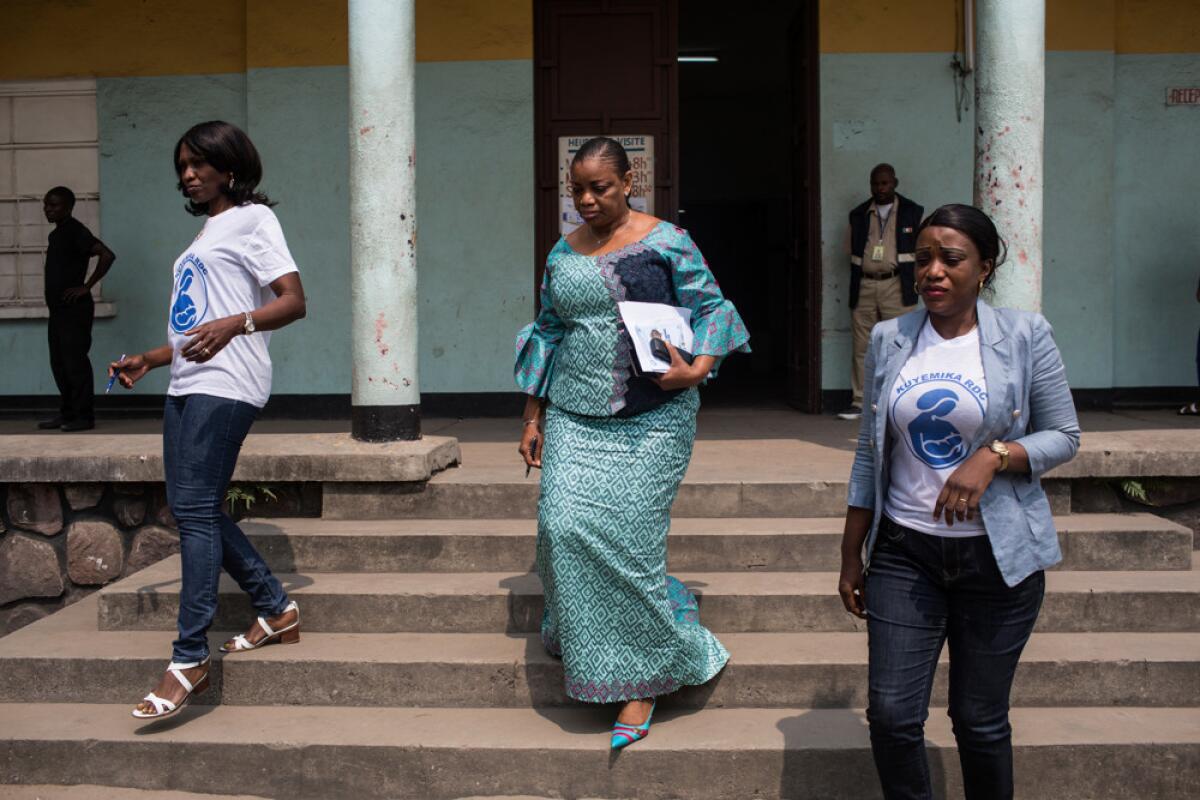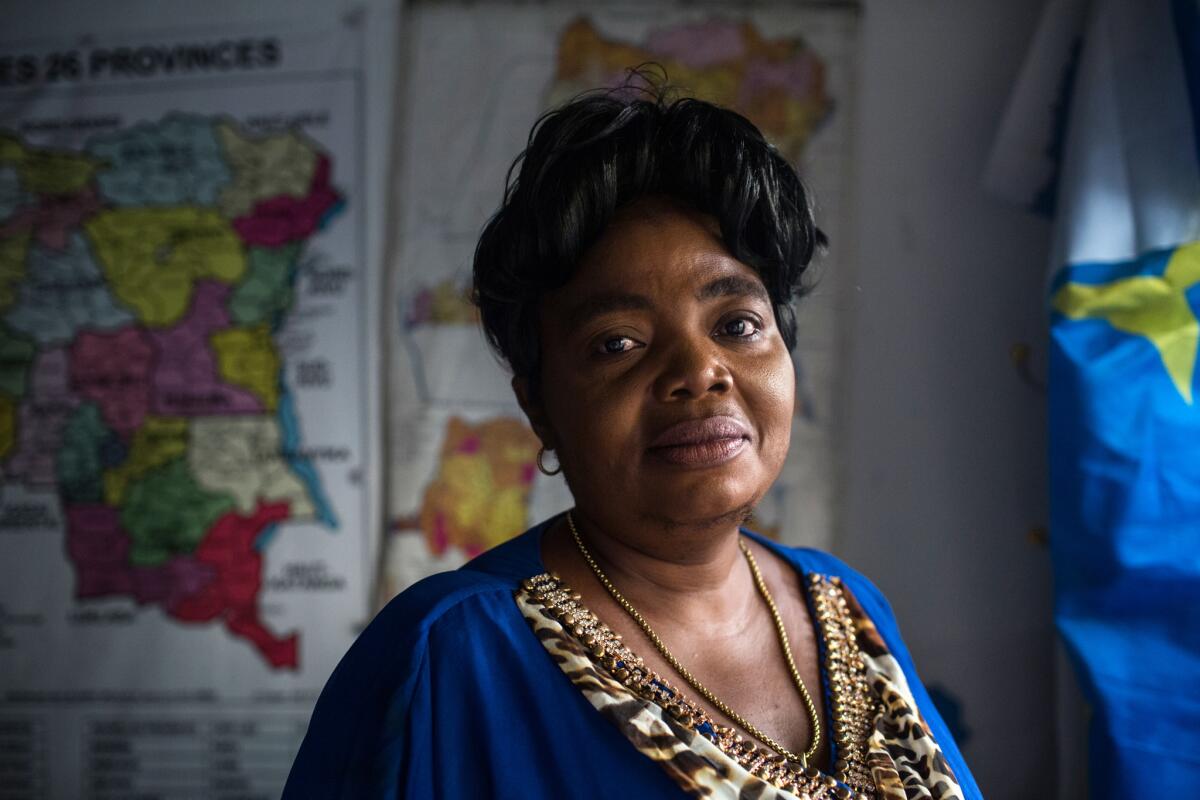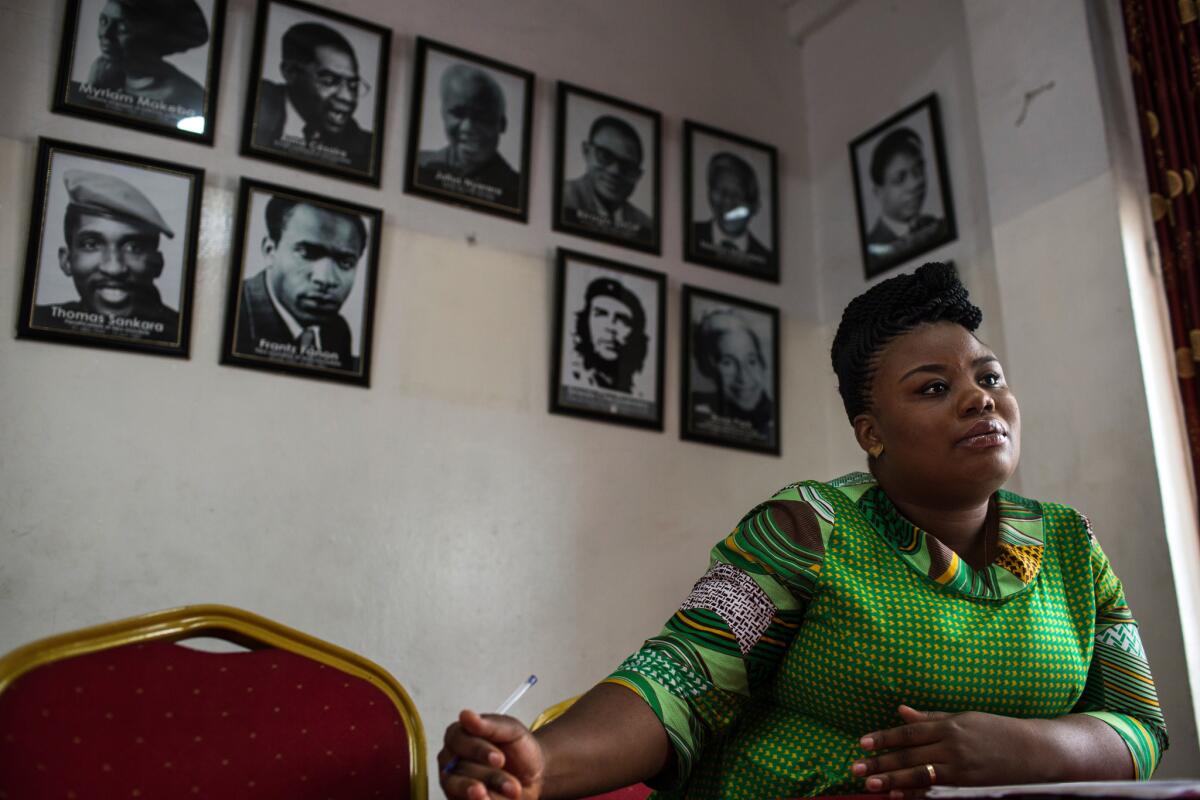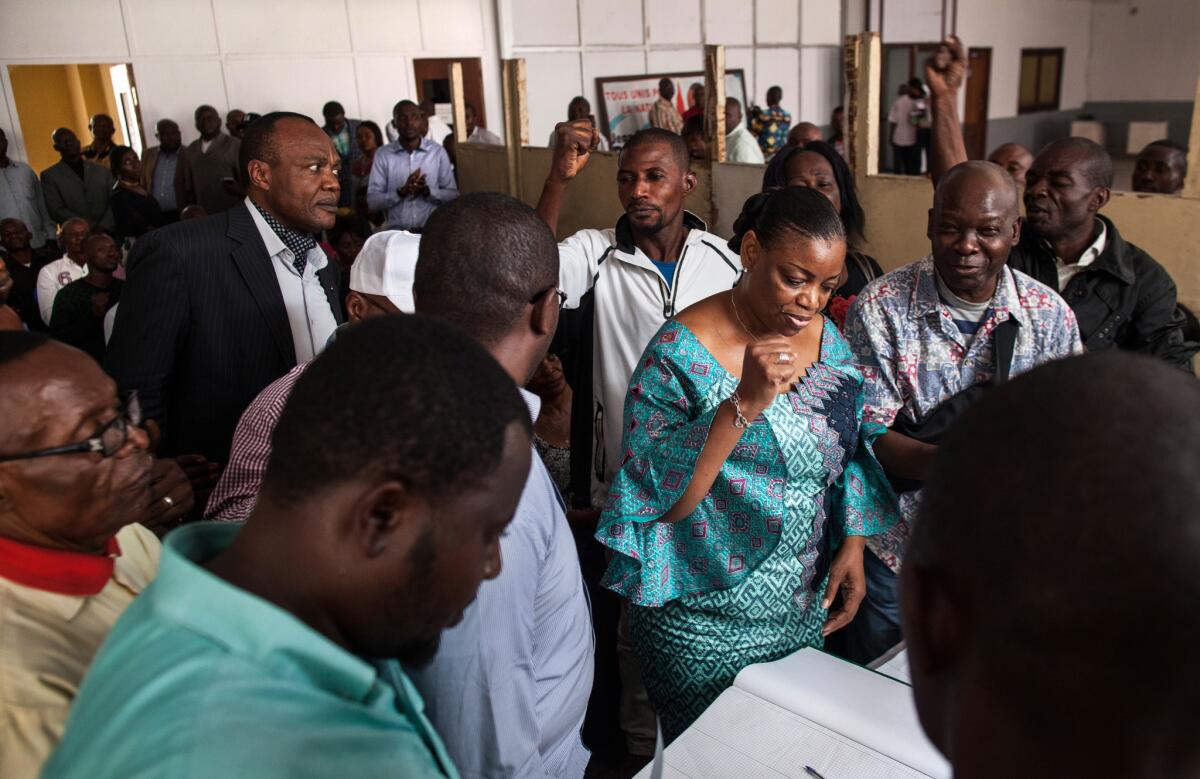Global Development: Africa is increasingly open to women in politics. In Congo, they have a fight on their hands

- Share via
When citizens of the Democratic Republic of Congo go to the polls next Sunday, attention will be focused on the race to succeed Joseph Kabila, the president of nearly 18 years. But away from the spotlight, there’s another battle going on: Women are fighting for a place in politics.
Africa has made huge strides in women’s political representation in recent decades. Some nations now have higher percentages of women in parliament than many European countries. But Congo lags far behind. Women make up only 9% of the National Assembly, putting the country far below the 24% average for sub-Saharan Africa.
Some Congolese women are fighting to change that. But the fight is slow and they face significant barriers: a society that frowns on women in leadership positions, financial hurdles and the government’s failure to enforce gender parity laws.
In a country with one of the highest rates of gender inequality in the world, these women say that getting a seat at the table is key to making Congo a better place.
We want women to bring another way of governing, not to make laws for individual benefit, but for the good of the community.
— Chantal Moboni Mpeme, a candidate for provincial Assembly
“When there are problems in the DRC, it’s women who suffer the most,” said Chantal Moboni Mpeme, a candidate to represent Kinshasa’s Limete municipality in the provincial Kinshasa Assembly. Only 7.8% of the assembly’s current membership are women.
“When there’s a rebellion, it’s the women who are raped,” she said. “When there’s no water, it’s the women who will struggle to be able to cook and wash. When there is no electricity, it’s women who are suffering, because they’ll need an additional budget to buy charcoal.
“Since long ago, we’ve been ruled by men, but today the country is suffering,” she added. “We want women to bring another way of governing, not to make laws for individual benefit, but for the good of the community.”
Mpeme will compete in an election that is finally taking place after a two-year delay, as Kabila clung to power despite constitutional term limits dictating he step down in 2016. The election was originally scheduled for this Sunday, but at the last minute was postponed one more week to Dec. 30.
Voters will elect a new president as well as members of the National Assembly and provincial legislatures. Kabila chose a former interior minister, Emmanuel Ramazani Shadary, as his preferred successor, and two opposition candidates are facing off against him. But there is widespread concern that the vote will not be credible, and a win by Shadary, who is under European Union sanctions for human rights abuses, is likely to be contested. That could lead to violence in a country already dealing with armed insurgencies and humanitarian crisis.
Despite abundant natural resources, Congo’s 80 million people are some of the poorest in the world, and women lag behind men by almost every socioeconomic indicator. Mpeme, 46, has long worked to change that, but now she wants to do so from a more powerful position.
She’s a member of the Engagement for Citizenship and Development party, whose leader, Martin Fayulu, is one of the candidates for president. Mpeme is in charge of communication for the women’s wing of the party, and she runs a civil society organization that promotes women’s rights.
“As a defender of women, I would prefer to be in a place where laws are made and written, so I can have more influence on women’s situation,” she said.

In 2008, Congo’s neighbor Rwanda became the first country in the world to have more women than men in its legislative body. Today, the country still leads the world in terms of female political empowerment, with women comprising 61% of its lower house of parliament. Rwanda adopted a gender quota in a new constitution in 2003, mandating that at least 30% of members of parliament be women. Beginning the 1990s, many countries in Africa adopted various kinds of gender quotas. Fifteen African countries now have legislatures in which women make up at least 30% of members.
Research suggests there are tangible advantages to securing more seats for women, even in autocratic countries with weak parliaments. Studies show that such legislative bodies are more likely to adopt laws that apply to women, such as statutes on gender-based violence, family law and land rights, said Gretchen Bauer, a University of Delaware professor who studies women’s political leadership in Africa.
But research also indicates that leads to wider societal changes, including increased acceptance of women as leaders and increased voter participation by women. “People change their ideas about what women can do if they see women in positions of power,” Bauer said.
Congo mandates gender parity in national, provincial and local institutions and in national elections. But there are no penalties for breaking the law and it is widely ignored. In the last election, in 2011, just 12% of candidates were women. And despite women’s efforts, there appears to be no improvement in this election — local media say the participation rate is about 12% again.
“A woman in Africa is considered like a person who should just stay at home and take care of her children,” said Charleine Tumba Muntu, a member of the African Democratic Union party from Kinshasa who is running for a seat in the National Assembly. When a woman wants to get involved in politics, she said people tell her: “You’re a woman — what are you going to do in politics?”

Muntu is fortunate that her family supports her political career. Her husband encourages her, as does her father, a former politician himself. But she faces one of the other significant barriers to women candidates: money. Candidates in Congo often have to finance their own campaigns, and women are far less likely than men to have the resources to do so.
To run for office, Muntu said, “requires financial means. And women don’t have a chance to work due to traditional marriage, so these women don’t have financial means.”

One woman who has been able to beat the odds is Bazaiba. As secretary general of the Movement for the Liberation of Congo, she led the party while former rebel leader and Vice President Jean-Pierre Bemba faced war crimes charges in the Hague. (His 2016 conviction was overturned this year.) Bazaiba is also a deputy in the National Assembly, and in her sleek office in the party’s headquarters, she spoke about the importance of getting more women in office.
“Even if we just have one woman in politics, things change,” she said. “But many women in politics will transform politics in favor of the general interest, because one woman on her own can lose against the system, but when you have many women, there’s strength in numbers.”
Chick is a special correspondent. Reporting for this story was supported by the International Women's Media Foundation.
Sign up for Essential California
The most important California stories and recommendations in your inbox every morning.
You may occasionally receive promotional content from the Los Angeles Times.







